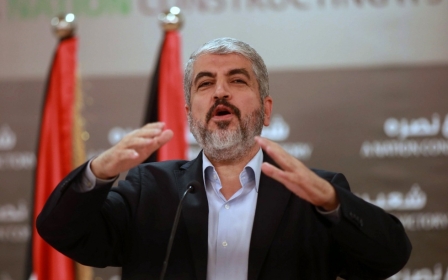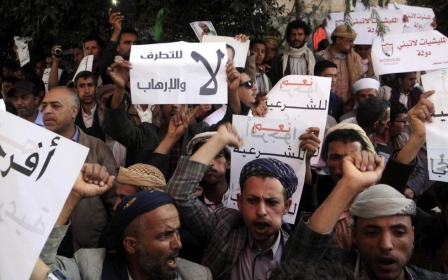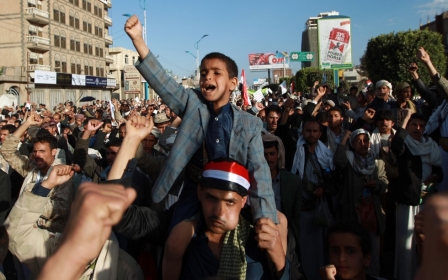Houthis in 'indirect contact' with Saudi Arabia, says group's leader

Yemen's Shiite Houthi militia revealed on Sunday that it had been indirectly contacting Saudi Arabia over the past two days.
"There has been indirect communication with Saudi Arabia over the past two days," Abdel-Malek al-Houthi, the leader of the Shiite militiamen, was quoted by Yemen's official news agency as saying.
He said his group expressed keenness on resuming relations with Saudi Arabia on the basis of mutual respect and non-interference.
Al-Houthi said during recent visits to both Riyadh and Doha, UN Special Envoy to Yemen Jamal Benomar said that he found no justification for moving Yemen's national dialogue talks outside the country.
The six-nation Gulf Cooperation Council had recently suggested moving the talks to Riyadh.
The council said that it was making this proposal at the request of Yemeni President Abd Rabbuh Mansour Hadi.
Yemen has remained in a state of chaos since last September, when the Houthis took over capital Sanaa, from which they have since sought to extend their control to other parts of the country.
In January, the Houthis issued what they described as a "constitutional declaration," dissolving the elected parliament and establishing a 551-member transitional council instead.
The declaration was, however, rejected by most of Yemen's political forces – along with some neighbouring Gulf countries – which described it as a "coup against constitutional legitimacy."
On Friday, the Houthi militia held military exercises near the border of Saudi Arabia, their spokesman said on Friday, a move that is viewed with suspicion in Riyadh.
The Houthis on Wednesday had rejected a call for Yemen's negotiations to be moved to the Saudi capital, claiming that Riyadh had not operated as a neutral actor in Yemen's political discussions.
Meanwhile Iran, Riyadh's regional rival, will be providing Yemen's Houthis with oil and electricity, according to an announcement on Thursday made by a Houthi delegation returning from a two-week visit to Tehran.
Yemeni political forces who oppose the Houthis' seizure of Sanaa have formed an alliance against the Shiite militia, which has increased its crackdown on dissent, as witnessed by the killing of protestors in the city of Baida on Thursday.
The chaos in Houthi-controlled Sanaa had led the World Bank to halt its operations in Yemeni capital, because the situation in Yemen had deteriorated to such a degree that the bank said it "was unable to exercise effective management over its projects."
The bank, which has pledged more than a billion dollars to develop Yemen, said the disbursement of funds had been suspended, and that its office in Sanaa was closed temporarily in mid-February in response to the deterioration in security.
New MEE newsletter: Jerusalem Dispatch
Sign up to get the latest insights and analysis on Israel-Palestine, alongside Turkey Unpacked and other MEE newsletters
Middle East Eye delivers independent and unrivalled coverage and analysis of the Middle East, North Africa and beyond. To learn more about republishing this content and the associated fees, please fill out this form. More about MEE can be found here.




